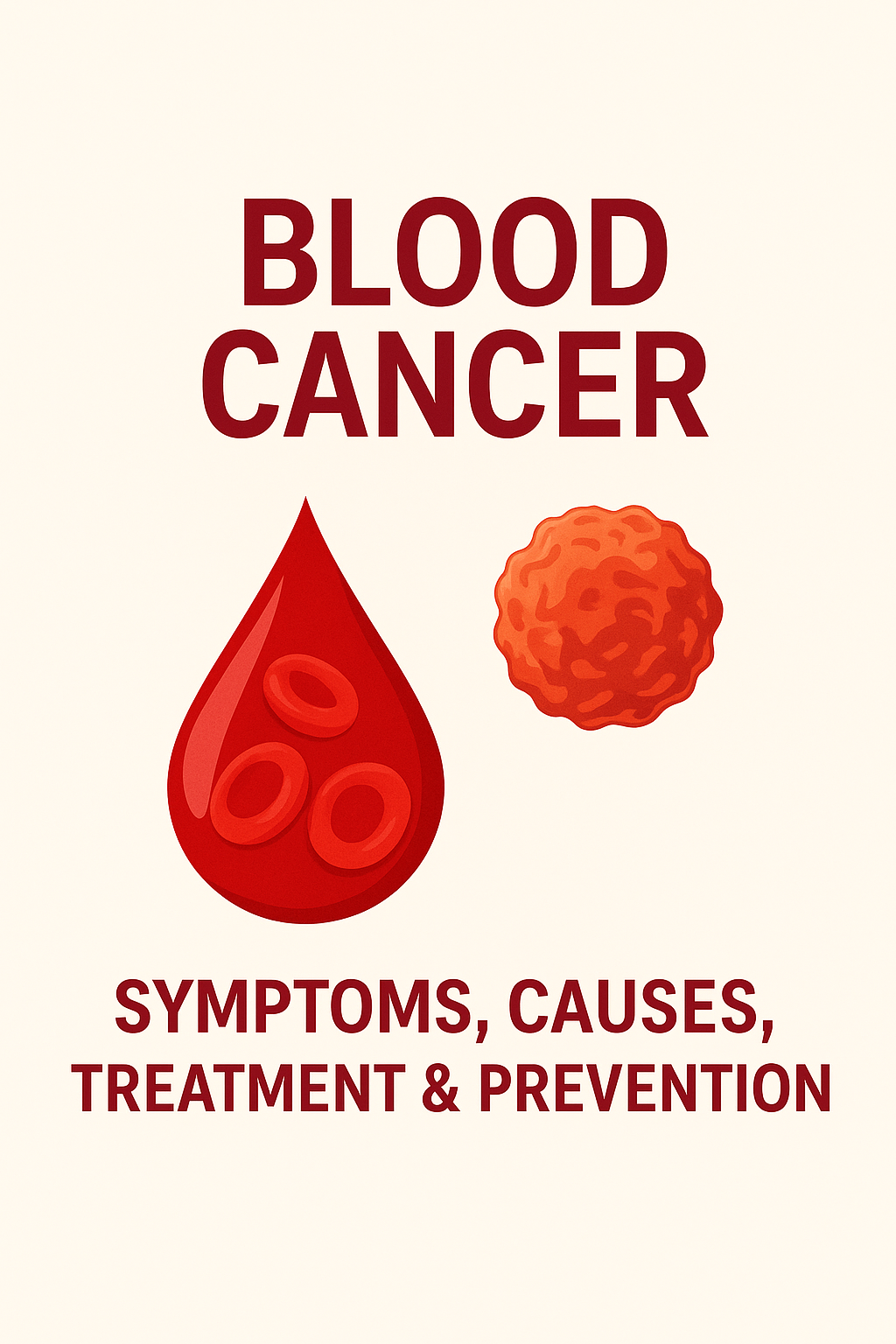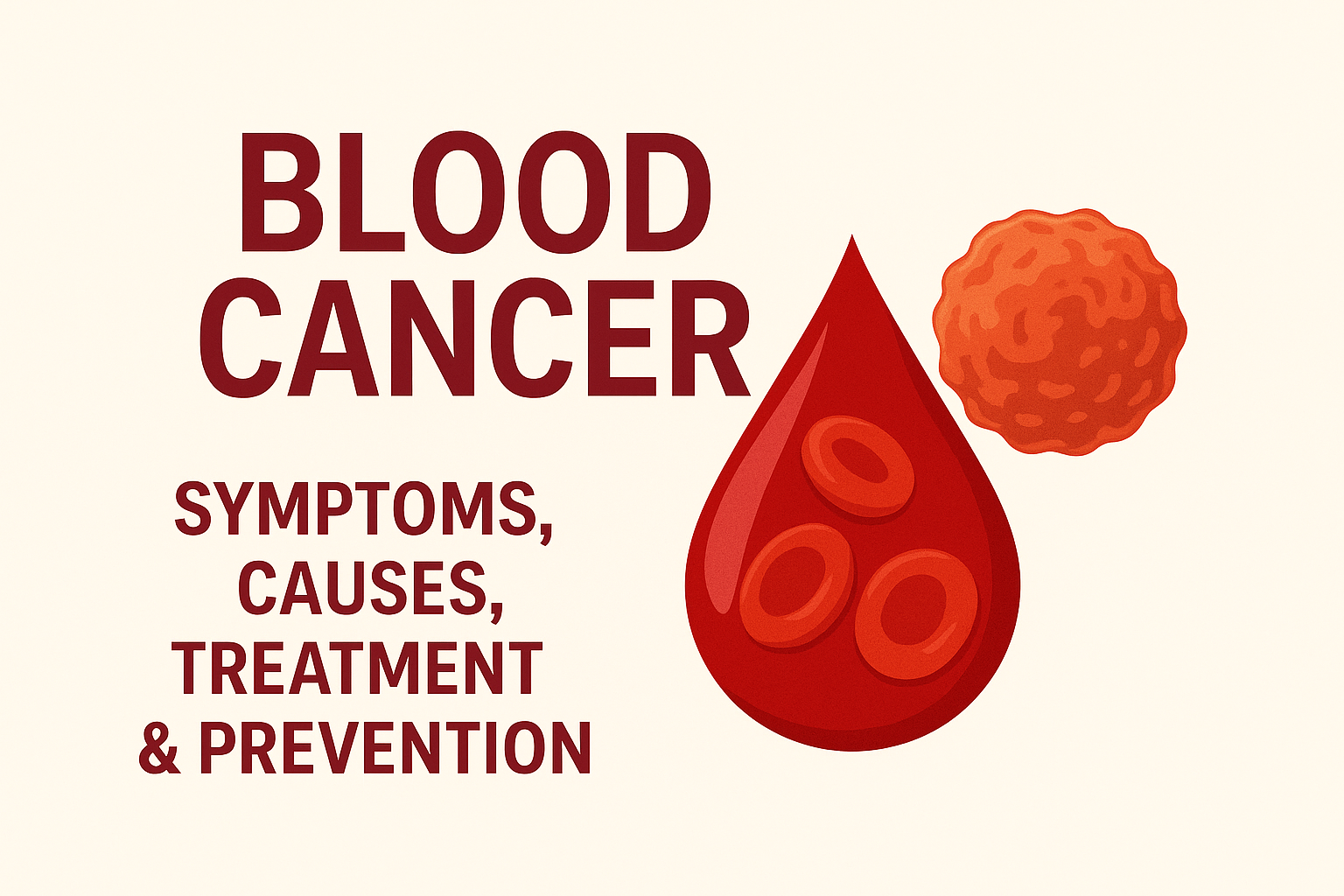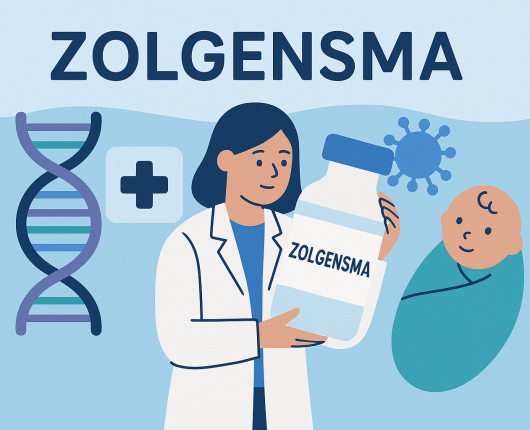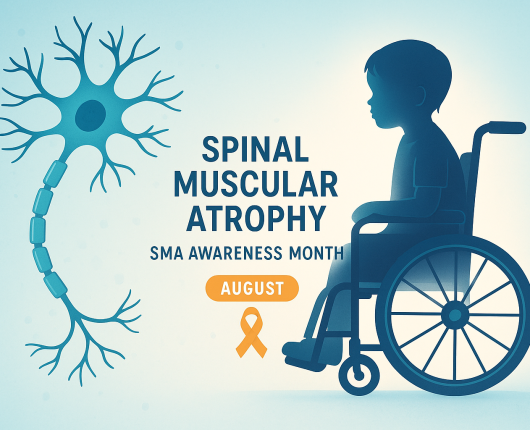Blood Cancer is a serious disease in which abnormal cells grow uncontrollably in the blood and bone marrow.
It affects the production of blood cells, weakens the immune system, and can reduce the body’s ability to carry oxygen.
Types of Blood Cancer
The three major types of blood cancer are:
- Leukemia
- Rapid, abnormal growth of white blood cells (WBC)
- Affects both blood and bone marrow
- Lymphoma
- Cancer of the lymphatic system, affecting lymphocytes
- Impairs immune system function
- Myeloma
- Cancer of plasma cells in the bone marrow
- Reduces the body’s ability to produce antibodies
Symptoms
Early signs of blood cancer can be mistaken for common illnesses, but watch for:
- Persistent fatigue or weakness
- Unexplained fever or night sweats
- Unexplained weight loss
- Frequent infections
- Bone or joint pain
- Red spots or easy bruising
- Swollen lymph nodes (neck, armpits, groin)

Causes & Risk Factors
The exact cause is not always known, but factors that increase the risk include:
- Prolonged exposure to radiation or harmful chemicals
- Smoking
- Weak immune system
- Family history of blood cancer
- Certain viral infections (HTLV-1, HIV)
- Pre-existing blood disorders
Diagnosis
- Complete Blood Count (CBC) – Checks blood cell levels
- Bone Marrow Biopsy – Examines marrow cells under a microscope
- Imaging Tests – CT scan, MRI, PET scan to detect spread
- Immunophenotyping – Identifies cancer cell type
Treatment Options
Treatment depends on the type, stage, and patient’s health condition.
- Chemotherapy – Drugs to destroy cancer cells
- Radiation Therapy – High-energy beams to kill cancer cells
- Targeted Therapy – Medicines targeting specific cancer cell mechanisms
- Immunotherapy – Boosts the immune system to fight cancer
- Bone Marrow / Stem Cell Transplant – Replaces damaged marrow with healthy cells
Prevention Tips
While blood cancer cannot always be prevented, you can lower risk by:
Getting regular health checkups
Avoiding tobacco and smoking
Limiting exposure to chemicals and radiation
Strengthening the immune system through a healthy lifestyle
Eating a balanced diet rich in fruits and vegetables
Conclusion
Blood cancer is life-threatening but treatable, especially with early detection.
If you experience persistent symptoms, seek medical advice immediately.
Awareness, timely diagnosis, and the right treatment can significantly improve survival rates.
Frequently Asked Questions (FAQ)
Q1: Is blood cancer curable?
Yes, many cases are treatable and even curable, especially when detected early. Success depends on the type, stage, and patient’s health.
Q2: What is the survival rate for blood cancer?
Survival rates vary by type — some forms like certain leukemias have high cure rates, while others are more challenging.
Q3: Is blood cancer hereditary?
While genetics can play a role, most cases are not directly inherited.
Q4: Can a healthy lifestyle prevent blood cancer?
It can reduce the risk, but it doesn’t guarantee prevention since some causes are genetic or environmental.
📢 Disclaimer: This article is for educational purposes only. Please consult a qualified doctor for medical advice.





